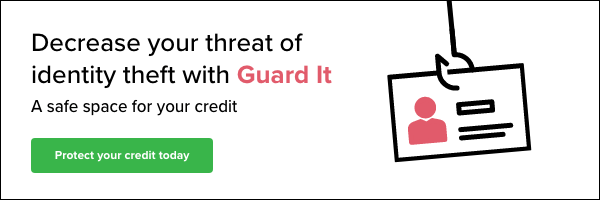In today’s digital and mobile-friendly world, identity theft is a concern consumers must consider. A 2020 identity theft study revealed that identity theft fraud reached $16.9 billion in 2019. Identity theft affects victims of all ages and situations, and this concern grows each year. Find out more about how to protect yourself against holiday identity theft below.
How Holiday Shopping Online Can Increase Risks
Many people use their mobile phones or computers to make purchases, which puts them at continued risk for identity theft fraud. COVID-19 has resulted in even more online spending as consumers stay home to minimize the risk of catching and spreading the coronavirus.
The Federal Trade Commission notes that scammers have gotten more creative since COVID-19, finding new ways to steal sensitive personal data and take advantage of consumers. From undelivered orders and extra fees to phishing links used to grab data, identity theft scams continually target online shoppers.
The following stats highlight the need to be proactive and be aware of identity theft. Whether you choose to shop online or in-store, you can take action to protect your personal information and watch out for common holiday identity theft scams.
Holiday Identity Theft Tactics to Watch For
Online shopping during the holiday season is common because of the added convenience and extra discounts and sales. Unfortunately, it can be easy to fall victim to an identity theft scam when doing your regular holiday shopping. Knowing what tactics to keep an eye out for is a must.
Consumer Reports notes that phishing link scams are especially prevalent during the holidays. Hackers send emails with links or post links on social media, which send you to websites that look and feel like the real deal. Instead, the sites are fake and are used to collect your private data. When you click on these links and enter your credit card information to make a payment or place an order, your data is stolen.
Consumers should also be wary of order confirmation emails and shipping update emails. Hackers often send fake emails to unsuspecting consumers, and these emails contain phishing links. Don’t rush to click a link.
Luckily, consumers can take steps to minimize the chance of falling victim to identity theft. Here are some helpful tips:
- Look at any email or website carefully before clicking a link.
- Verify URLs when typing web addresses.
- Research the reputation of a brand or website before placing an order.
- Consider using identity theft monitoring tools so you notice fraud quickly.
- Create and use strong passwords that are hard to guess.
- Purchase and use computer virus protection.
- Check your credit report at least once a year.
There’s no need to give up on holiday shopping. Follow the above tips and be on alert for holiday identity theft. You may also consider supporting local small businesses. They appreciate your business, and it allows you to purchase items in person without entering your credit card details online.
What Are the Signs of Identity Theft?
As a consumer, it’s essential to be aware of the signs of identity theft. Catching fraud right away can help you avoid financial difficulties. Watch out for these warning signs:
- Unexplained withdrawals from a bank account
- Missing bills and other pieces of mail
- Unfamiliar accounts listed on a credit report
- Order confirmation or shipping confirmation emails for orders you didn’t place
- Unexplained medical bills or charges
- Alerts of data breaches
- An unexplained denial of credit
Those are some, but not all, of the signs of identity theft. If something feels or looks suspicious, listen to your gut and be on high alert. If you ignore the warning signs, identity theft can hurt you in many ways.
What Should You Do if You’re a Victim of Identity Theft?
It’s important to report identity theft right away. Contact one of the three credit bureaus and place a fraud alert to stop continued fraud. You can also contact the Federal Trade Commission and report your experience to help protect other consumers.
You should also take steps to protect your personal information and sensitive data. Using identity theft protection tools cab minimize fraud and monitor your data. These protective tools can also give you greater peace of mind.
Protecting yourself is easy to do. Extra Credit offers a service called Guard It, which monitors your accounts and the dark web to alert you of any suspicious activity or potential signs of fraud. If fraud is suspected, you’ll receive proactive alerts so you can take action right away. Guard It members receive an included identity theft insurance policy to help cover identity restoration costs if necessary.
If you’re looking for an account monitoring tool and want to better protect yourself during the online holiday shopping season, sign up for Extra Credit. In today’s busy world, protection against online shopping identity theft is a must.
You Might Also Like
March 11, 2021
Personal Finance
March 1, 2021
Personal Finance
February 18, 2021
Personal Finance








